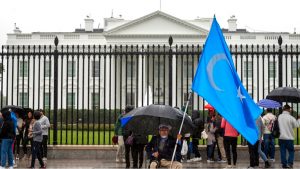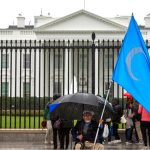
UN, EU, and Central Tibetan Administration Condemn Enforced Disappearances in Tibet

The United Nations, the European Union, and the Central Tibetan Administration have issued a joint statement condemning the ongoing enforced disappearances of Tibetans in the Tibetan region, allegedly orchestrated by the Chinese government. The organizations expressed deep concern over the rampant cases of enforced disappearances, torture, and ill-treatment of Tibetans in custody, urging global action to address these violations.
The joint statement highlighted that each year, Chinese authorities arbitrarily arrest numerous Tibetans, including religious and community leaders, writers, musicians, and activists, for expressing their Tibetan national identity and opposing repressive policies. Many of these individuals are subjected to enforced disappearances, often leading to prison sentences on dubious charges. The fate of many who have been imprisoned remains unknown, with no information provided about their well-being.
“The systematic practice of enforced disappearances at any time under any circumstances is a crime against humanity,” the statement read. It referenced the first Article of the UN Declaration on the Protection of All Persons from Enforced Disappearance, which asserts that any act of enforced disappearance violates international law, including the right to legal recognition, liberty, security, and protection from torture or other cruel treatment.
The statement further criticized China, a UN member, for consistently disregarding international human rights law and global standards in its treatment of Tibetans and other nationalities under its control. Among the most prominent cases of enforced disappearance is the abduction of Tibet’s 11th Panchen Lama, Gedhun Choekyi Nyima, in 1995. The Panchen Lama, then six years old, was taken along with his family and Chadrel Rinpoche, and for nearly three decades, China has refused to provide credible information about his whereabouts or well-being.
The organizations also cited recent cases, such as the disappearance of several Tibetans this year, including Phuntsok, Pema, Samten, Zomkyi, Tamdin, and Lobsang Thabkhey, whose fates remain unknown. They also noted the case of Gendun Lhundup, who was arbitrarily arrested in 2020 and whose whereabouts remain undisclosed to his family more than three years later.
The statement underscored the profound impact of enforced disappearances on both victims and their families, who are left in prolonged uncertainty about their loved ones’ fate. The recent death of Phude, a 53-year-old Tibetan mother, was also highlighted. Phude died in February 2024 after suffering from depression caused by the disappearance of her son, Tenzin Khenrab, who was arrested in 2023 for possessing a photo of the Dalai Lama on his phone. Despite her repeated pleas, Chinese authorities refused to disclose any information about her son’s whereabouts.
In their joint appeal, the UN, EU, and Central Tibetan Administration called on international governments, organizations, human rights activists, and supporters to continue pressing China to disclose information about Tibetans who have been arbitrarily arrested and disappeared, including the case of the 11th Panchen Lama. They emphasized that enforced disappearances constitute a severe violation of international human rights standards and that China is obligated to thoroughly investigate these cases and provide reparations to those affected.
- Bangladeshi Ambassador Salahuddin Noman Chowdhury Meets Energy Minister Dipak Khadka to Discuss Bilateral Energy Cooperation
- Foreign Minister Dr. Arzu Rana Deuba to Attend Women Foreign Ministers’ Meeting in Canada
- CIAA Submits Fiscal Year 2080/81 Report to President Paudel
- Nepal-US Joint Military Drill on Post-Disaster Response Begins












Comments